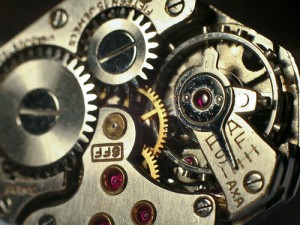Are luxury watch brands breaching European Union protocol and refusing to supply parts to independent repairers? No one knows for sure, or at least no one’s telling, which is why the EU antitrust regulators are beginning a new investigation into the allegations.
A similar complaint was thrown out by the European Commission three years ago, but after the European Confederation of Watch & Clock Repairers’ Associations (CEAHR) apppealed to the General Court, the commission’s decision was annulled in December, and an investigation will now be conducted.
Part of the complaint states that:
“The watchmakers’ actions threatened to drive independent repairers out of business as there were no alternative sources for most spare parts. ”
While mainstream watch industry watches now have self-contained and battery-driven electronics, luxury watchmakers still work with clockwork or mechanical movement parts. These are highly specialized, precision parts that often require the work of an expert watchmaker to repair them. Because each part is so small and customized, if independent watchmakers can’t get the parts from the industry manufacturer’s, they’ll be forced to stop servicing luxury watches and lose a large fraction of their business.
And not only that, this effects luxury watch owners as well. When their watches need servicing they are frequently forced to send their watches to the manufacturer for any work, or they must go through an official brand agent. And both of these options come with hefty price tags.
In an investigation of free market competition, and the rights of small businesses and customers there is no clear answer yet. So far, the European Commission has refused to name the companies that are being investigated, but Swatch Group has admitted to being involved.
For more information check out this Reuters article.






Leave A Comment